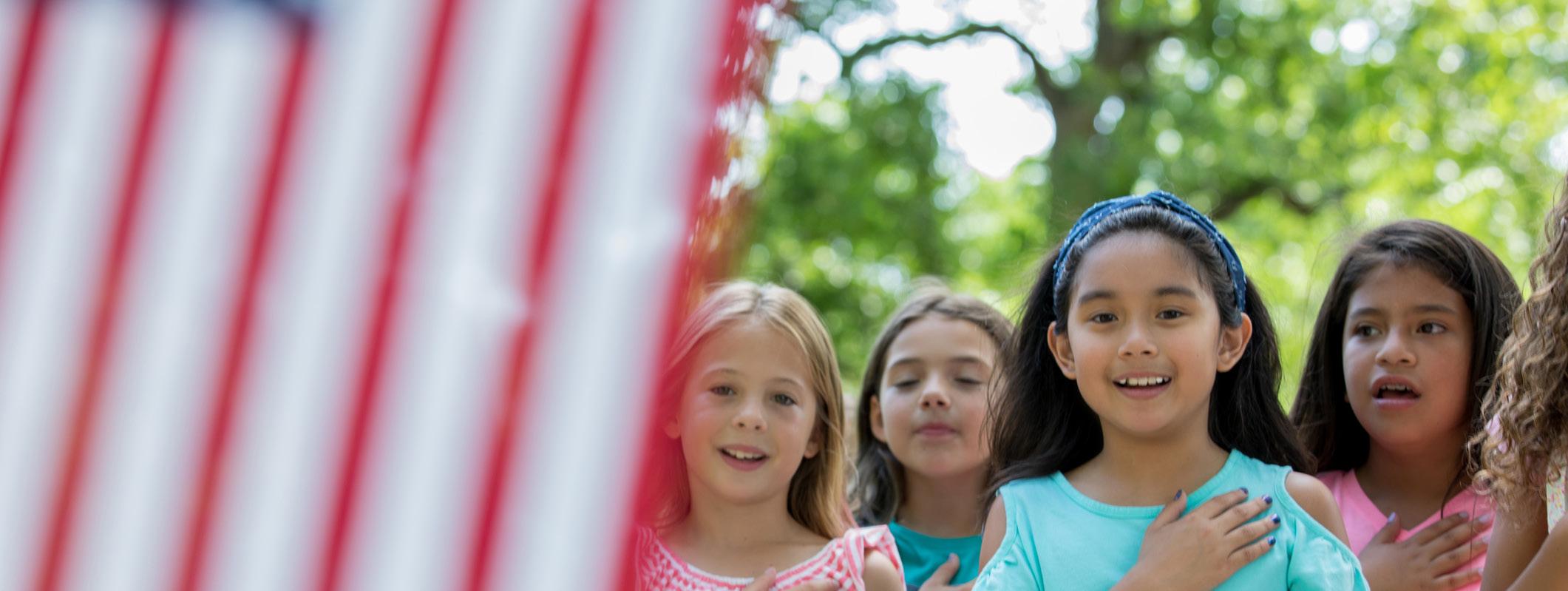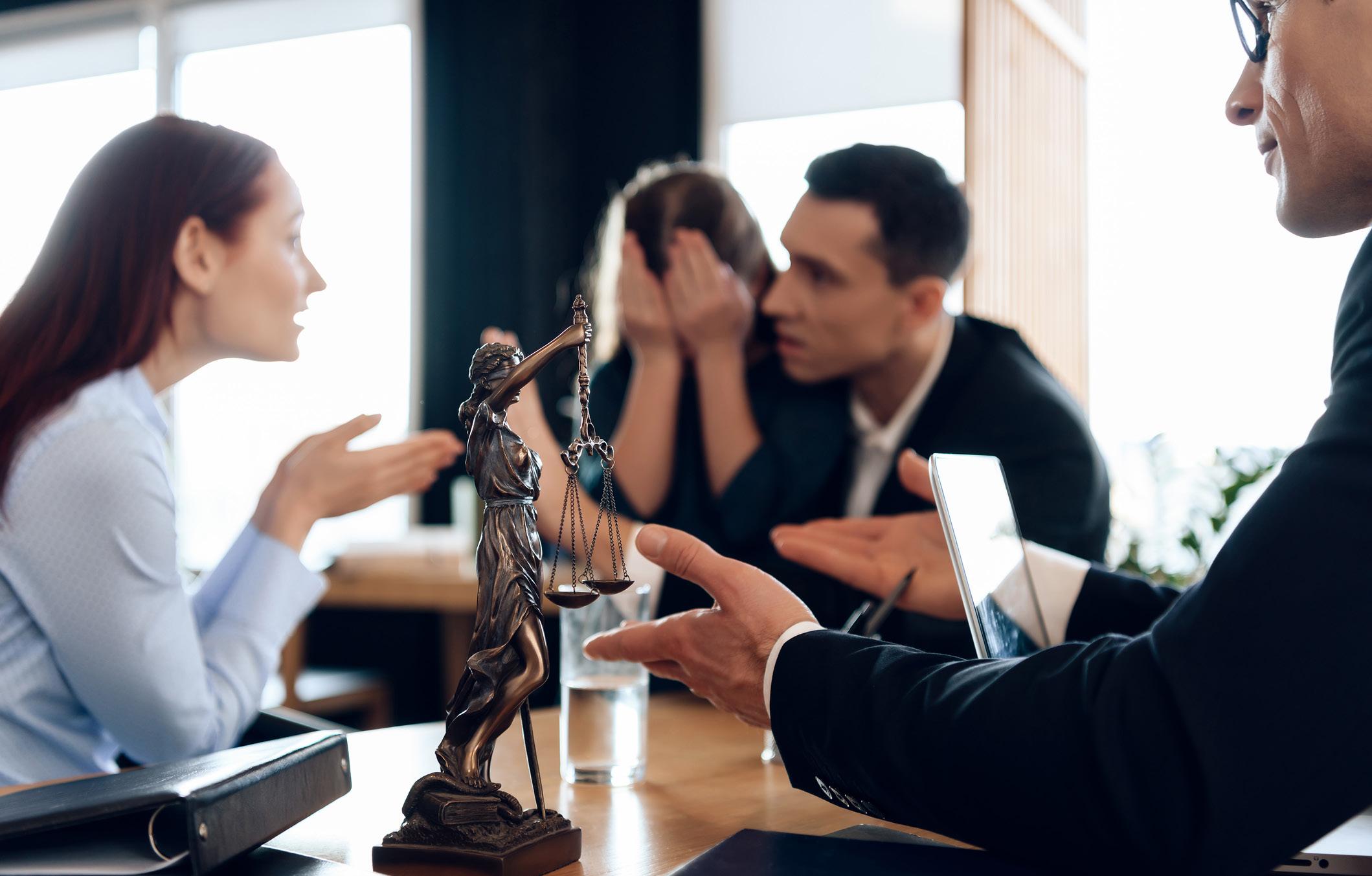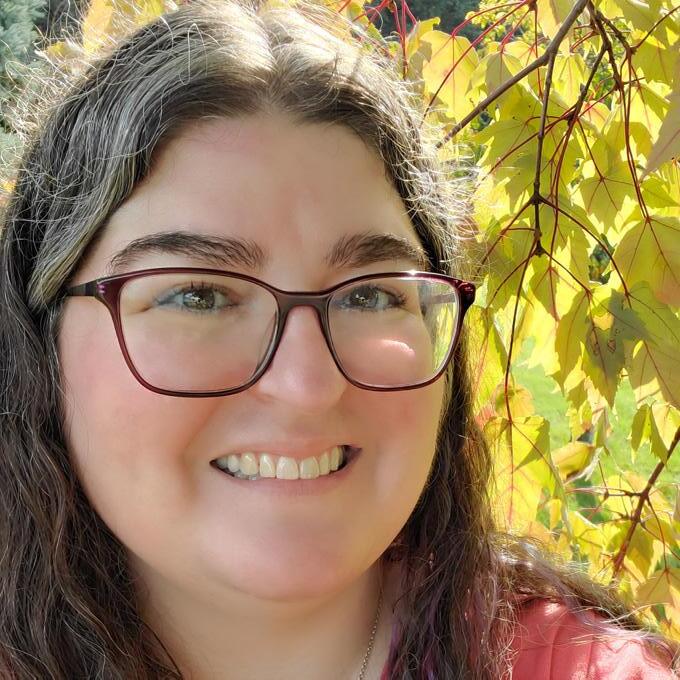
12 minute read
RESTORATIVE JUSTICE
By Donna Bulatowicz
The Pledge of Allegiance claims our country has “liberty and justice for all,” yet that persists as an unrealized ideal. Justice remains elusive for many.
There is rarely justice for those who have been victimized, especially when perpetrators have more social power than their victims. Various tiers of “justice” support those who have majoritized identities and wealth while causing additional harm to those who have less power.
I learned to call it the injustice system as a child. After I told on my abuser, the police chose to support her and further traumatize me. They claimed that a woman wouldn’t molest a girl. The abuser had insinuated herself into many parts of the community, wrapping herself in a facade of dedicated volunteer, tireless advocate, devoted mom, loving spouse, and caring teacher. Thus, the police refused to believe someone they admired and liked could do so much evil, which is likely what she counted on when she carefully cultivated specific relationships and manipulated those in power.
She played on stereotypes, casting herself as an upstanding “traditional” heterosexual wife and mother. She calculated which friendships would protect her and surrounded herself with enablers. She manipulated sympathies, the halo effect, and more, using her small stature and womanhood as insulation.
When she learned I told on her, she became enraged and sought revenge. She had a sadistic, vindictive streak and would stop at nothing to get back at someone she thought wronged her. She knew how to deny, attack, and reverse victim and offender (DARVO).
She painted a picture of me as a villain and herself as a poor, innocent victim. All the while, she fed off those enablers who rushed to her defense and refused to see the child in front of them. They chose to view me as a cruel, crazy criminal who lied about their beloved friend and family member and needed to pay. I lost out on honors and awards I’d earned, was emotionally and psychologically abused by adults, and had more trauma heaped on top of trauma until I prayed each night to never wake up.
She weaponized the 'injustice system' against me as well. She knew how to play with power, social capital, and more. Teen girls, as a group, have numerous negative stereotypes, little power, and face numerous areas of oppression, especially when they belong to additional minoritized groups.
My abuser decimated my name and reputation.
She started with her class. When she returned from paid leave during the sham of an investigation, one of her students told me that she’d said that she had been gone because I’d lied about her, and they should let me know what they thought of me. Some of them took it as a mandate to bully me, though others felt sorry for me and believed me.
Next, she started passing around a paper about me to my teachers. I only read one during my senior year in high school, so I don’t know if all versions were the same, but it was vicious, defamatory, and full of false accusations. Again, she encouraged people to let me know how they felt about me.

A few years after I told on her, she sued my parents and me. She claimed I destroyed her reputation and told everyone she abused me. I’d told some people outside of the school counselor and police, like some friends and family members. The students who had been in class with me knew what they’d observed, and many of them realized later what had happened.
However, she told all her students I’d lied, which made word go around school among the students. The paper she passed out trashed me to teachers and staff. She also told various people she knew in the community that I’d lied, etc. The reason so many people knew is because she spread it around. Yet she sued me for the results of what she did, using the injustice system to drain finances, cause stress, and fake outraged innocence.
Yet her actions showed she was likely guilty. She did what many abusers do, down to threatening self-harm after I told. She would never have done what she pretended, but she got immense sympathy and compassion from her act, and she turned more people against a child.
My deposition was an all-day, grueling, cruel affair. Her lawyers—one of whom physically resembled her—were just as vicious as she and refused me the comfort of having a parent present, even though I was underage.
They treated me like a criminal until I became fed up and decided to describe her identifying marks, which one of her lawyers stopped immediately and ordered stricken from the record. They took a break and quickly wrapped up questioning after that instead of making me come back another day.
She ended up dropping the lawsuit but would only do so if my parents paid their own legal fees. Not wanting to subject me to additional harm, they agreed.
I lost out on all chances for justice. She continued teaching elementary school until “enough” or “too many” little girls made the same complaints about “inappropriate behavior” as I, or that’s what I was told. She moved to teaching college, and she died without ever being honest or facing any accountability for her felonious actions.
RECONSIDERING JUSTICE
My definition of justice has changed over the years. My distrust in the current system has grown as I’ve done research and learned more about it. Since the abuser is dead, she will never be found guilty or even face charges. Her victims have paid, and are paying the only prices for her criminal actions.
I only told on her to protect other little girls. For decades I felt like I failed, especially when people told me that they’d heard she victimized “several little girls.” These were people who didn’t know she’d abused me.
I have come to recognize that I didn’t fail. Adults failed me and the other little girls. They didn’t protect me from her, and even after I told, they didn’t protect others.
The school district never spoke to me or my classmates during their “investigation.” They moved her to a school with more hiding places and to a younger grade level.
I had to reconsider justice in a way that didn’t blame me or rely on a problematic system.
I decided that my healing journey is a form of justice. Reclaiming my voice is justice. Helping adults better protect children from sexual abuse is justice. Speaking up is justice. Punishment isn’t required for me to receive justice.
I would like people to see her as she was, an unrepentant child molester who caused immense harm to the little girls she victimized. However, her family bears no responsibility for what she did, and they would be the ones paying a price if her true nature was revealed now. It won’t affect the dead pedophile at all, but it would impact younger members of her family who did not enable her or otherwise harm any of her victims.
RESTORATIVE JUSTICE

Restorative justice typically brings together the person or people who have been harmed and the one(s) who caused the harm. All who participate should understand the process, and the harm doer(s) need to have genuine remorse and a desire to make amends in whatever way(s) work best for those they damaged.
I first read about restorative justice in educational spaces and children’s books. I hadn’t practiced it, but the more I thought about it, the more I wished something had been available to me when I was going through all the trauma.
I decided to search for restorative justice and sexual abuse and came across Hidden Water. Hidden Water is an organization that leads four different colors of restorative justice circles twice a year. One circle is for survivors of childhood sexual abuse, one for loved ones, one for caregivers, and another for those who sexually abused children or teens. There are also circles for people who identify with more than one color.
Each circle has a small number of participants, including two circle keepers. They last for twelve weeks and are based on an Ojibwe community’s practices of restorative justice.
MY EXPERIENCES IN CIRCLE
I first joined an affinity circle for LGBTQ2S+ survivors. I had no idea what to expect, but I immediately felt welcome. The circle keepers, other participants, and I co-created a space where all of us could speak about our experiences, healing journeys, and more. Knowing that I didn’t have to hide my lesbian identity helped me feel safer. The predictable format of circle helped also, especially with the speaking order.
In many meetings, I struggle with knowing when and how to speak up. I’ve found allistic (individuals who do not identify as autistic) people in meetings tend to jump in, talk over each other, and more. I’m autistic and can’t always figure out how to do that. It feels disrespectful and disregulating to interrupt someone. Thus, my voice often goes unheard, and I typically feel drained, sad, and frustrated after meetings.
However, in the survivor circle, we have a speaking order. I know that I will be heard, and I can choose to pass if I’m not ready to share. I don’t have to struggle with sorting through competing, interrupting voices or the silencing of my voice. It’s predictable, safe, and my nervous system can relax. It’s neurodiversity-affirming and honors all participants’ perspectives.
These circles are one of the few spaces where I’ve been included, welcomed, affirmed, and safe. The topics are emotional and challenging, yet I feel much less drained than in competitive spaces. I can be present with my whole self, and I don’t need to mask. I look forward to circle meetings.
In addition to acceptance and inclusion, the circles honor each person’s dignity and humanity. We all have experiences where we have caused harm, deliberately or inadvertently. People tend to want to be viewed as full humans, rather than as the worst or most harmful thing they’ve done. This includes abusers, and it can be a challenge to see beyond the evils of abuse.
PERSONAL GROWTH DUE TO RESTORATIVE JUSTICE CIRCLES
I’ve made more progress in my healing journey since participating in circles. I have learned coping strategies from others. I’m not alone with some experiences and/or feelings that felt isolating previously. The other circle participants see and hear me, and I do the same with them.
Self-advocacy is an area in which I struggle. Not only is this common for abuse survivors, but I also didn’t know until several years ago that I’m autistic. I simply believed I was broken. Now I know my brain isn’t wired like an allistic brain. It’s different, not less than. My communication styles are valid also, as are my needs. I don’t have to harm or diminish myself to please others.
Thanks to the Hidden Water circles, I’ve been able to learn about and practice selfadvocacy as an autistic person. I know for the first time what it’s like to participate in a neurodiversity-affirming meeting where all people are valued and welcome. Speaking one’s truth is encouraged and all people’s innate dignity and light are honored.
If my abuser told me the truth, she experienced severe, ongoing abuse and neglect as a child. She deserved so much better than that, as all children do. I have found it easy to feel compassion for what she went through as a little girl.
But I also saw her as a monster for most of my life. I harbored intense anger toward her for all the harms she perpetrated and orchestrated against me. I didn’t want to see her as anything other than the evil that she did.
Although I had started moving toward seeing more of her humanity and acknowledging that she did good as well as evil, the circles assisted me in making greater progress. She is more than the evil she chose to do, though of course, that colors her life.
Nothing can excuse the harms she chose to visit upon me and others. I have found greater understanding and explanations for why she was the way she was. I do not forgive her at this point, and I may never do so. However, since I now see her as a complex, complete person and not just a monster, I believe that if she had been able to be honest, accountable, and have true remorse, I would have benefited from a restorative justice practice with her.
I would have wanted her and her enablers to hear me, see me, and recognize the harms done. Amends that would benefit me would have included paying for everything I need to heal from the harms, acknowledgment of the harms, a sincere, genuine apology, and work done toward sexual abuse prevention.
My justice occurs through helping myself and others. Justice means protecting children and preventing abuse. True justice changes and heals those harmed as well as those who cause harm.
I find justice in healing, speaking up, integrity, selflove, advocacy, and more. I am moving from surviving to thriving, from silence to advocacy.
I am creating my own justice.

ABOUT THE AUTHOR
Dr. Donna Bulatowicz has recently moved to the beautiful state of Maryland to be closer to family. She studies and advocates for inclusive children’s literature as well as sexual abuse prevention. She is a former chair of the Charlotte Huck Award for Outstanding Fiction for Children and a former president of the Montana Association of Teachers of English Language Arts (MATELA). Dr. Bulatowicz has created and given sexual abuse prevention trainings for teachers and other school officials.
You can reach Donna at facebook.com/donna.bulatowicz.










